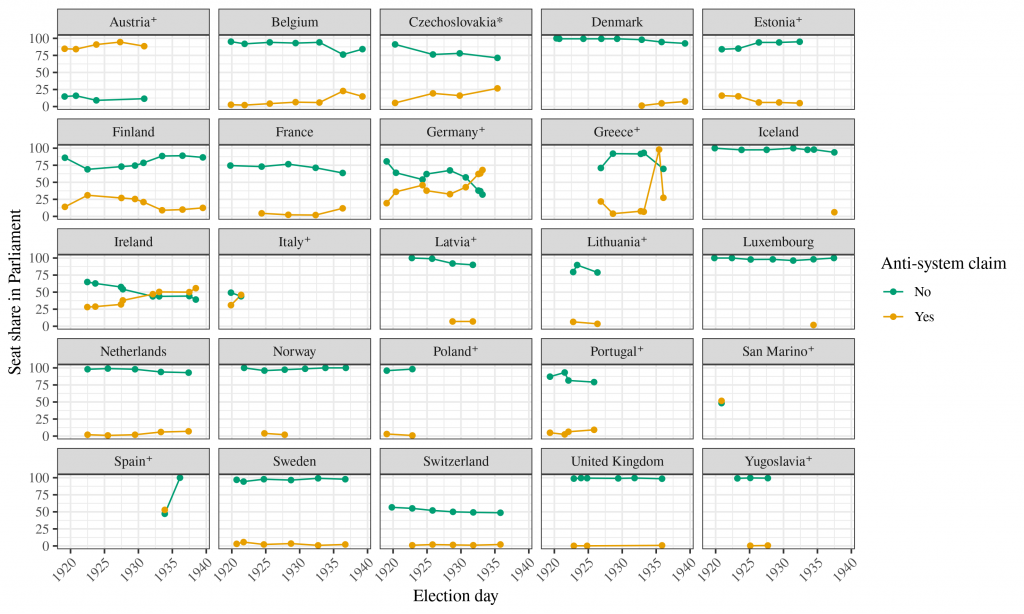Since October 2021, we, the DANGER team, have been collecting data on political elites and their actions in Europe’s interwar period. The Actions by Elites and Leaders (ABEL) dataset contains two levels of analysis: the party and the government-event level.
The party-level data provides information on the goals, ideology, and supporters of all political parties with representation in one of Europe’s democratic parliaments between 1919 and 1939. The 485 parties and party alliances in the dataset include pro-democracy outfits such as liberals or social democrats along with anti-democratic forces including communist and fascist parties. The party-level data will allow the DANGER team to explore which coalitions political leaders formed, if anti-democratic parties were included or excluded from power, and which role polarization across the political spectrum played.
The government-event level data classifies different actions by interwar governments that limited democratic rights. These actions might have been intended to confront enemies of democracy, for example, through bans of parties or organizations that threatened democratic regimes. However, government leaders might also have grabbed power, shifted elections, or banned opposition parties to concentrate power in their own hands. Such steps to weaken democratic constraints help us to identify processes of democratic deconsolidation
Together the two levels of analysis allow us to explore how political leaders reacted to threats to democratic rule through accommodation (for example, coalitions with anti-democratic parties) or confrontation (for example, party bans). Eventually, the data will help us better understand which actions were successful and which were detrimental in saving democracy.
Currently, we are still collecting data on the government-event level. With the help of more than ten research assistants, archives, and libraries across Europe, we have completed data collection at the party level, which we are currently validating. We presented first insights from the data at the International Conference on the Political Economy of Democracy and Dictatorship at the University of Münster and at the Annual Conference of the European Political Science Association in Prague. We are aiming to release a first version of the dataset in 2023.
